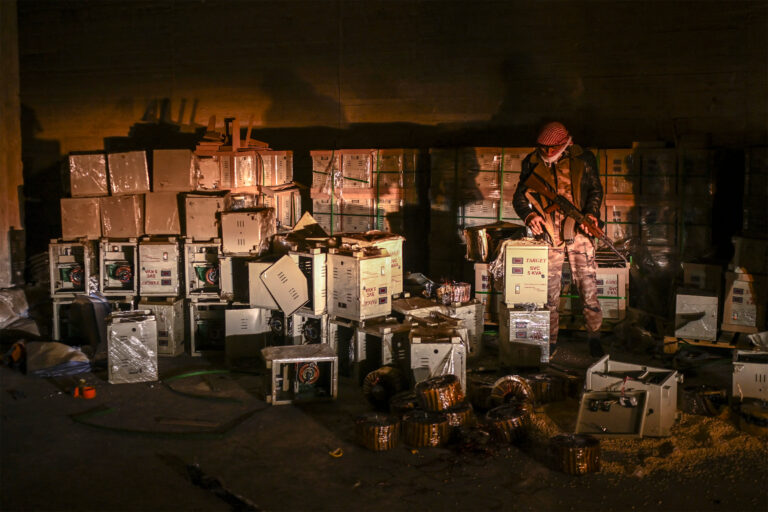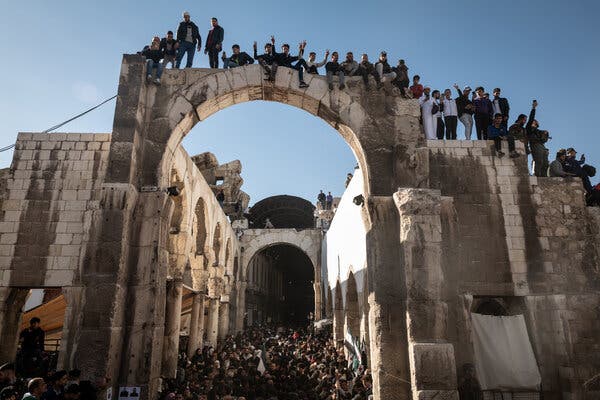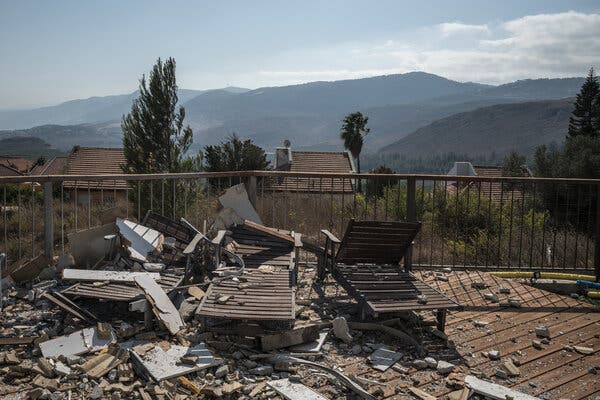The additional forces, which one official placed at between 2,000 and 3,000, will bolster security for the 40,000 U.S. troops already in the region and help defend Israel, officials said.

President Biden is sending a “few thousand” more troops to the Middle East, the Pentagon said on Monday, as tensions rise amid Israel’s intensified attacks against Hezbollah militants in Lebanon.
Defense Department officials said the additional forces would bolster security for the 40,000 U.S. troops already in the region and help with the defense of Israel.
A Pentagon spokeswoman, Sabrina Singh, said the deployment would include multiple fighter squadrons. Other officials said they would include F-15, F-16 and F-22 fighter jets as well as A-10 warplanes, adding substantially to American air capability.
The Pentagon declined to say exactly how many more troops were being deployed. But one official put the number at between 2,000 and 3,000.
The 40,000 American troops already in the region are stationed on bases in Iraq, Syria and other countries. The U.S.S. Abraham Lincoln, in the Gulf of Oman, is on an extended deployment in the region, and a second aircraft carrier, the U.S.S. Harry S. Truman, left Norfolk, Va., a week ago for the Mediterranean as part of a regularly scheduled deployment.
Last week, the Pentagon announced it was deploying additional troops to the region but declined to give a number.
Israeli commando units have made brief incursions into Lebanon in recent days to prepare for a possible wider ground invasion, according to several Israeli officers and officials and a senior Western official. But American officials said on Monday that they believed that the invasion would be limited.
The Israeli and Western officials said the raids were focused on gathering intelligence about Hezbollah’s positions near the border, as well as identifying the Iranian-backed group’s tunnels and military infrastructure, in order to attack them from the air or the ground. The officials spoke on the condition of anonymity to discuss a sensitive military matter. The Israeli military declined to comment.
Hezbollah began attacking northern Israel soon after Hamas, which is also backed by Iran, attacked Israel on Oct. 7. Israel and Hezbollah have been exchanging fire since then.
On Sunday, Defense Secretary Lloyd J. Austin III warned that “should Iran, its partners or its proxies use this moment to target American personnel or interests in the region, the United States will take every necessary measure to defend our people,” according to a Pentagon statement.
Helene Cooper is a Pentagon correspondent. She was previously an editor, diplomatic correspondent and White House correspondent. More about Helene Cooper



